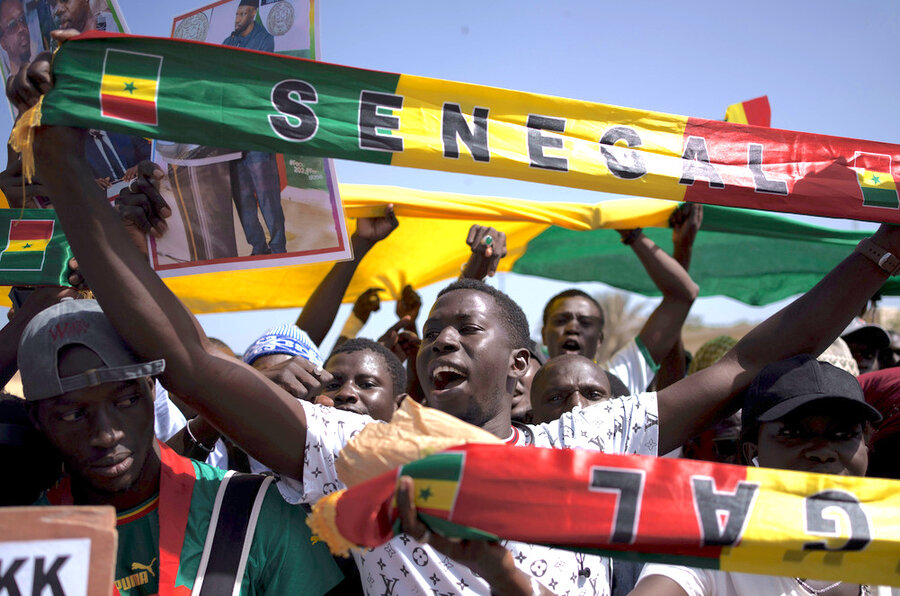Civic strength in Senegal’s calm
Loading...
In a year shaped by elections in at least 64 countries, there will be fresh material for measuring the global health of democracy. In one West African country, a ballot crisis reveals exactly what that health rests on.
On Feb. 3, President Macky Sall of Senegal postponed elections due later this month, citing allegations of corruption by the judicial body that determines the eligibility of candidates. His decision marks the first time that Africa’s most successful model of the peaceful transfer of power – four since 1960 – may be broken. It raises concerns of further erosion of legitimate governance on a continent beset by multiple military coups in recent years.
Yet within Senegalese society, Mr. Sall’s move has prompted a diverse and robust response shaped by strong traditions of dialogue, dignity, and the democratic rule of law. Civil society groups and trade unions launched a new platform today called Let’s Protect Our Election. Young Senegalese are reenergizing a movement launched by rappers and journalists a decade ago to promote peaceful civic participation.
Opposition candidates, meanwhile, are turning to the courts, despite a weakening of judicial independence in recent years. Rather than demonizing the president, some have accepted his call for dialogue with an assumption of good faith.
“Macky Sall was a beacon of hope,” Khalifa Sall (no relation), a presidential candidate and former mayor of Dakar, told Le Monde. “We believe that [he] is endowed with reason. We don’t despair that he will recover it.” In power since 2012, the president is constitutionally barred from seeking a third term.
The defenses of Senegalese democracy run deep. “The tradition of associations is deeply entrenched in Senegalese culture,” reflected in a legal environment that encourages civic participation, notes the Washington-based International Center for Not-For-Profit Law. A mutually reinforcing set of expectations – “transmitting values” – endures between the government and armed forces that is rare in Africa.
“We can’t emphasize enough soldiers understanding their role and place in society and of respect for civilian authority,” an army colonel told the Africa Center for Security Studies in December. “But ... military professionalism must be balanced by civilian professionalism on the other side of the scale.”
Collectively, civil society and Senegal’s democratic institutions have brushed back earlier attempts to thwart the country’s constitutional norms – in 2012, when then-President Abdoulaye Wade tried to seek a third term, and again last July, when Mr. Sall considered a similar move. A disputed or derailed election now, the Institute of War Studies observed Wednesday, could exacerbate the grievances of Senegalese youth over lack of economic opportunity.
Yet an underlying confidence endures. As the polling group Afrobarometer confirmed this week, while the proportion of Senegalese citizens who express satisfaction with the way democracy works in their country has fallen 24% during Mr. Sall’s tenure, 84% nonetheless say they prefer democracy over any other system.
“A country must be built on dialogue because it is dialogue that builds a country,” said Imam El Hadj Malick Niang, during an interfaith rally for peace and democracy last year.
Relying on that wisdom now, the people of Senegal can show that the health of their democracy depends as much on their own actions as on those of their elected leaders.





